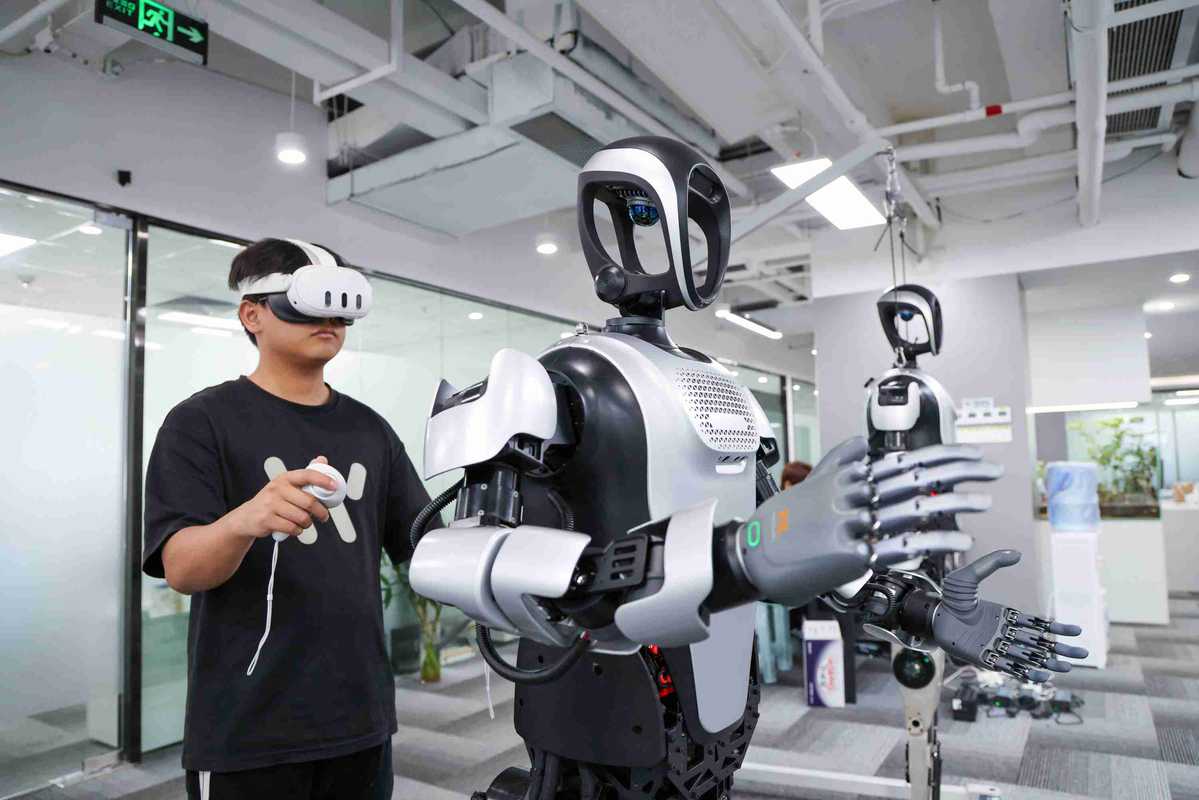Tech edge heralds more dynamism in Chinese enterprises: Accenture


Chinese enterprises have gradually moved away from a reliance on scale-driven growth toward high-quality growth, mainly driven by increased investment in technological innovation, accelerated global expansion and continued capital input in digitalization, said Samantha Zhu, chairperson of Accenture Greater China.
"China has structural advantages to embed transformative technologies at scale across the economy and infrastructure," Zhu said in an exclusive interview with China Daily, highlighting that for businesses looking to boost their productivity and performance, advanced technologies present an unprecedented opportunity to create value, respond dynamically to changes and build resilience.

She noted that it is clear that China is emerging as "an innovation-driven economy", with its breakthroughs in areas like artificial intelligence, robotics, renewable energy, electric vehicles and biomedicine, showcasing its growing capability in critical technologies that underpin long-term competitiveness.
"The recent progress in the wave of AI innovation led by open-sourced large language models is so encouraging that companies quickly mobilize themselves to harness the use of such technologies," she said.
As China is strengthening foundational research and development and embedding new technologies into core business scenarios, the company anticipates more innovation and application happening across industries and functions, from R&D to manufacturing, from customer interface to warehouse, from upskilling to sustainability, she added.
Accenture estimates that adopting a holistic approach to productivity, with generative AI acting as a multiplier, could boost productivity growth from 1.9 percent to 15.9 percent.
According to the consultancy, IT spending in China grew much faster than the global average between 2021 and 2023. China now boasts one of the most vibrant AI ecosystems in the world, driven by a mix of enterprise adoption, tech startups and public-private partnerships.
To fully capitalize on the opportunities, multinational corporations should empower local teams to codevelop AI solutions with local partners, integrate AI into core operations and leverage China as a strategic launchpad for scalable innovation, it said.
Zhu emphasized that with more Chinese companies surveyed expecting their generative AI solutions to be adopted at scale within their organizations this year, there is a strong momentum of AI-driven transformation as the businesses quickly integrate it into decision-making, operations and customer engagement. "Looking at the vibrant AI ecosystem, we can say that China is not just an AI market — it's a proving ground for AI adoption by enterprises at scale."
According to market research company CCID Consulting, the market scale of China's AI sector will reach 1.73 trillion yuan ($241 billion) by 2035, accounting for 30.6 percent of the global total.
Moreover, Chinese consumers are among the most eager in the world to adopt new technologies, making China a leading indicator for global innovation trends, according to Accenture.
Whether it be AI-powered services, e-commerce, or smart devices, innovations that gain traction in China often foreshadow broader shifts that will later reshape consumer expectations worldwide, it noted. Companies that closely follow Chinese consumers can gain early insights into emerging trends, allowing them to test, refine and accelerate innovations ahead of competitors in other markets.
"We believe the experiences China gained from the past reforms and the determination to continue leading high-quality growth will give China a strong start in the years to come," Zhu said.
By combining the power of technology, people, organization and ecosystem, companies will be better positioned to become more people-led and innovation-driven, building their resilience as well as identifying new growth trajectory, she noted.
She added it is imperative for companies to pivot from optimizing cost efficiency to creating value, and to make long-term investments in R&D, empower local talent and form ecosystem partnerships that unlock innovation.
Chinese companies are becoming more active in investing in advanced digital technologies represented by AI and bolstering technological innovation, said Pan Helin, a member of the Expert Committee for Information and Communication Economy, which is part of the Ministry of Industry and Information Technology.
However, they are facing difficulties and challenges in digital transformation, including budgetary shortfalls and inadequate skills training, Pan said, adding these companies should devise long-term plans and continuously invest money into this field.




































